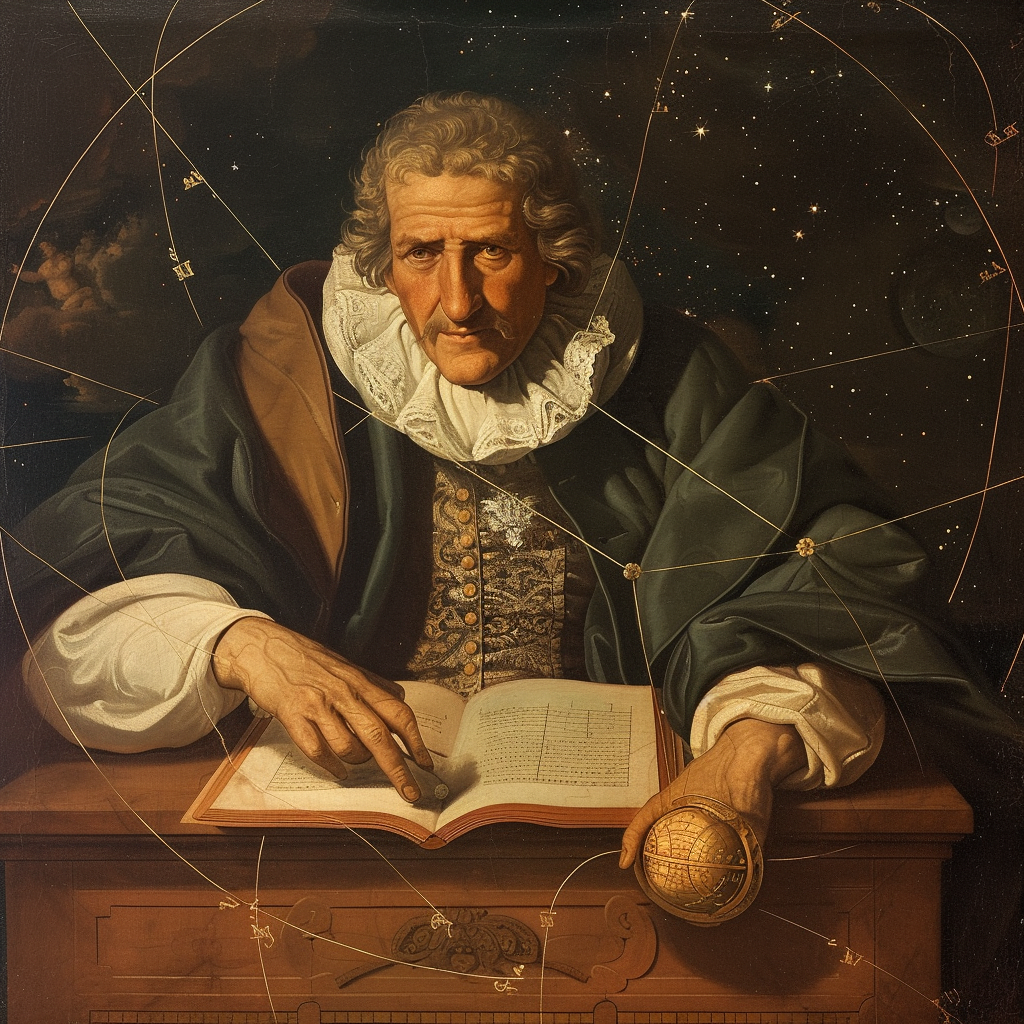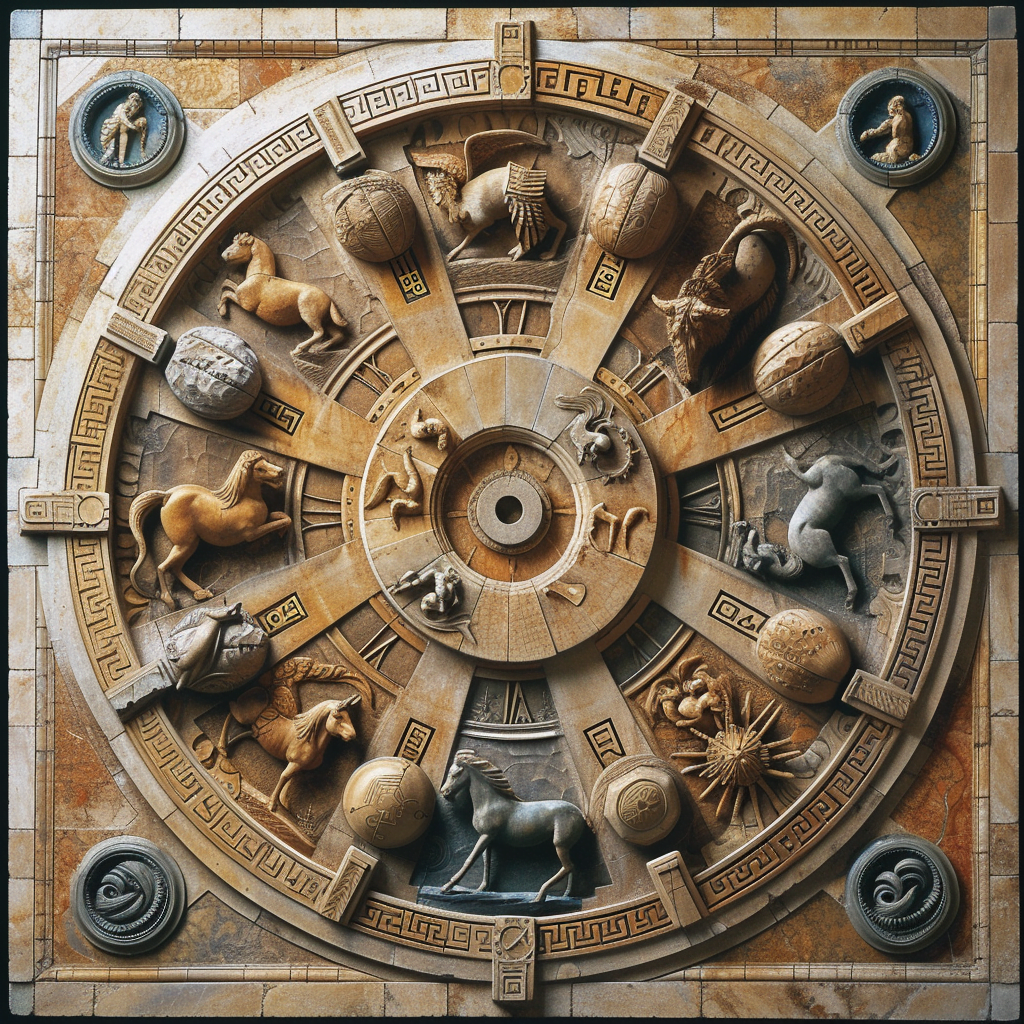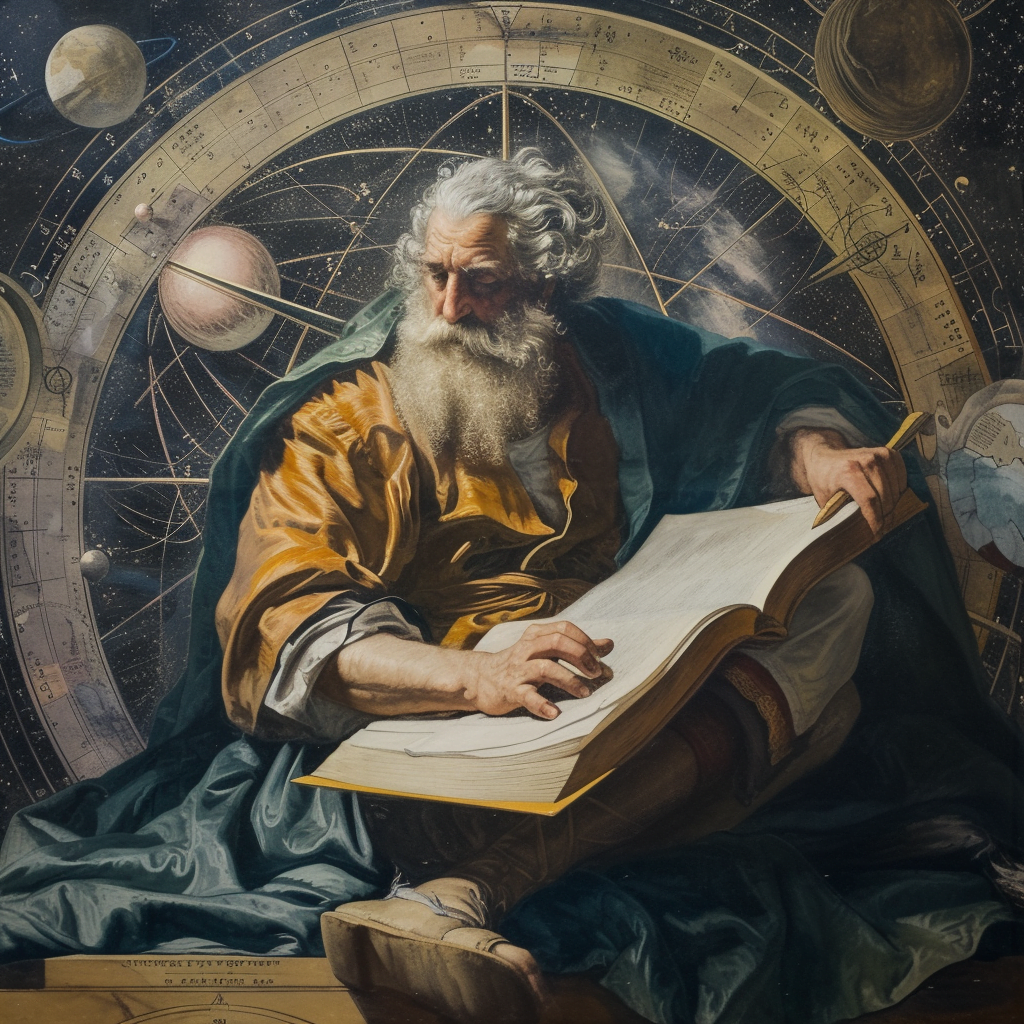The origin of the zodiac signs has long been a subject of fascination and intrigue. This article aims to shed light on the enigmatic question: “Who created zodiac signs?” By delving into the history of astrology and the concept of the zodiac, we will uncover the individuals and cultures behind the creation of this celestial system. From ancient civilizations to modern astrologers, the development and evolution of zodiac signs have influenced and shaped our understanding of the cosmos and our place within it. Join me on this intellectual exploration as we unravel the mysteries surrounding the origins of the zodiac signs.
Ancient Beginnings of Astrology
Origins of Astrology
Astrology, the study of celestial objects and their movements’ influence on human behavior and events, has its origins in ancient civilizations. The earliest recorded evidence of astrology dates back to the third millennium BCE in Mesopotamia and Egypt. These ancient civilizations believed that celestial phenomena, such as the movements of the stars and planets, held significant meaning and power.
Development of Zodiac Signs
The concept of zodiac signs, which categorizes individuals into specific astrological groups based on their birth dates, developed over time. The zodiac signs we recognize today were influenced by various ancient cultures, including the Mesopotamians, Egyptians, Greeks, and Indians. These civilizations observed the positions of celestial bodies and assigned symbolic meanings to them, associating them with different personality traits and destinies.
Early Astrology Systems
In its early stages, astrology primarily focused on predicting natural events and agricultural cycles. The Babylonians, who were renowned for their sophisticated mathematical and astronomical knowledge, played a crucial role in the development of astrology. They developed astrological systems based on celestial observations and created the first horoscopes around the fifth century BCE. These early astrology systems laid the foundation for the astrological traditions that followed.
Babylonian Astrology
Babylonian Astrologers
Babylonian astrologers were highly regarded in their society and served as advisors to the kings and rulers. They believed that the movements of celestial bodies held significant influence over both individual lives and the fate of empires. Babylonian astrologers meticulously observed celestial configurations and recorded their observations on clay tablets called Ephemerides. These records helped them make predictions about human affairs, weather patterns, and other significant events.
Zodiacal Significance
The Babylonians divided the ecliptic, the apparent path of the Sun across the celestial sphere, into twelve equal sections, each representing thirty degrees. They associated each section, or zodiac sign, with specific constellations and named them after various animals. The zodiac signs were believed to symbolize different personality traits and divine influences. This system of the twelve zodiac signs was later adopted by other civilizations and has a lasting impact on Western astrology.
Influence on Western Astrology
The knowledge and practices of Babylonian astrology spread to neighboring regions and cultures, particularly the Hellenistic world. The conquests of Alexander the Great led to the Hellenization of the eastern Mediterranean and beyond, leading to the fusion of Babylonian astrology with Greek philosophical ideas. This fusion eventually gave rise to what is now known as Western astrology, which incorporates both Babylonian and Greek astrological traditions.

Egyptian Influence
Ancient Egyptian Astrology
Ancient Egyptians also held a significant belief in the influence of celestial bodies on earthly affairs. Their astrology primarily focused on the importance of the Sun and its journey through the twelve zodiac signs. The Egyptians associated each zodiac sign with specific gods and goddesses who governed different aspects of human life. For instance, Aries was linked with Amun-Ra, the Sun god, and Libra with Maat, the goddess of justice.
Dendera Zodiac
One of the most remarkable ancient artifacts related to Egyptian astrology is the Dendera Zodiac. Located on the ceiling of the Hathor temple in Dendera, Egypt, this circular stone relief depicts the twelve zodiac signs and various astronomical symbols. The Dendera Zodiac not only showcases the Egyptians’ understanding of the zodiac signs but also demonstrates the significance they attributed to celestial events in their daily lives.
Contribution to Zodiac Signs
While Babylonian astrology had a more direct influence on the development of zodiac signs, the Egyptians’ contributions should not be overlooked. Their unique understanding of the Sun’s journey through the zodiac signs and the association of specific deities with each sign added depth and symbolism to the overall astrological system.
Greek and Hellenistic Astrology
Early Greek Astrologers
The ancient Greeks made significant contributions to various fields, including philosophy, mathematics, and astronomy. Greek astrology emerged during the Hellenistic period, which began after the death of Alexander the Great in 323 BCE. Greek astrologers combined Babylonian and Egyptian astrological traditions with their own philosophical and mythological beliefs, creating a diverse and intricate system.
Hellenistic Astrology
Hellenistic astrology, a branch of Greek astrology, flourished between the 2nd century BCE and the 4th century CE. During this period, renowned astrologers such as Claudius Ptolemy and Vettius Valens further developed and systematized astrological techniques and interpretations. Hellenistic astrology introduced concepts such as the Ascendant (rising sign), Lots (Arabic Parts), and planetary rulerships, which continue to be central to modern astrological practice.
Zodiac Constellations in Greek Mythology
Greek mythology played a vital role in assigning meaning and significance to the zodiac signs. Each zodiac sign was linked to a respective constellation and associated with mythical figures and stories. For example, the zodiac sign Leo is associated with the lion, representing the Nemean Lion slain by the demigod Heracles (Hercules). These mythological associations added depth and narrative to the interpretation of astrological charts and contributed to the enduring fascination with the zodiac signs.
Mesopotamian Impact
Assyrian and Persian Influences
The influence of Mesopotamian astrology extended beyond Babylon. The Assyrians, a powerful Mesopotamian empire that emerged after the fall of Babylon, continued to practice and develop astrology. Their astrologers made important advancements in observational techniques and expanded the range of celestial phenomena considered in astrological interpretations. Additionally, the Persian empire adopted and integrated Mesopotamian astrology into its own culture and practices.
Central Role of Babylon
Babylon remained the primary center for astrology in the ancient Near East. The city’s renowned Temple of Marduk housed the library of the famed astronomer-priests known as the Chaldeans. The Chaldeans meticulously recorded celestial movements and interpreted their significance, solidifying Babylon’s central role in disseminating astrological knowledge to neighboring regions and civilizations.
Astrology Transmission to Hellenistic World
The conquest of Babylon by Alexander the Great in 331 BCE played a crucial role in the transmission of astrology to the Hellenistic world. The Chaldean priests, known for their astronomical and astrological expertise, became influential figures in the Hellenistic courts, sharing their knowledge and practices with Greek scholars. This fusion of Babylonian and Greek astrology laid the foundation for the subsequent development of Western astrology.
Chinese Astrology
Chinese Zodiac System
Chinese astrology developed independently from Western astrology and has its unique system, known as the Chinese zodiac. Unlike the Western zodiac, which is based on the solar calendar, the Chinese zodiac relies on the lunar calendar. The Chinese zodiac consists of twelve animal signs, each corresponding to a year in a twelve-year cycle. These animal signs are believed to reflect certain personality traits and have a profound influence on one’s destiny.
Origins and Development
The exact origins of Chinese astrology remain uncertain. Some scholars trace its roots back to the Han Dynasty (206 BCE- 220 CE), while others believe it has even earlier origins. Chinese astrology drew inspiration from various philosophical and cultural elements, including the concepts of yin and yang and the Five Elements (Wood, Fire, Earth, Metal, and Water). Over time, it evolved into a comprehensive system used for divination, character analysis, and compatibility assessments.
Comparison with Western Zodiac
While the Chinese zodiac shares the twelve-year cycle pattern with the Western zodiac, there are several fundamental differences. Unlike the Western zodiac, which focuses on individualism and personal traits, the Chinese zodiac places greater emphasis on collective and societal characteristics. Additionally, each Chinese zodiac sign is associated with one of the Five Elements, further adding complexity and depth to the interpretations.
Indus Valley Civilization
Early Indian Astrology
The Indus Valley Civilization, one of the world’s oldest urban civilizations, also had a rich astrological tradition. Although limited written records remain from this ancient civilization, archaeological discoveries suggest that they had a profound understanding of astronomical phenomena and their connection to human life. Indian astrology, known as Jyotish or Vedic astrology, developed from these early practices and became a significant part of Indian culture.
Contributions to Zodiac Signs
The contributions of Indian astrology to the development of zodiac signs lie in its interpretation of time cycles and the division of the ecliptic. Indian astrologers divided the ecliptic into twenty-seven equal sections called Nakshatras, with each Nakshatra representing specific characteristics and qualities. These divisions provided a more nuanced understanding of the zodiac signs and their influences on individuals.
Vedic Astrology Influence
Vedic astrology, as a component of Indian astrology, profoundly influenced the development of Western astrology. During the Hellenistic period, Indian astrological texts, known as the Surya Siddhanta and the Yavanajataka, were translated into Greek and Latin. These translations introduced Indian astrological concepts, such as the division of the ecliptic into twelve equal parts, known as houses, and the significance of the Ascendant, to Western astrologers.

Islamic Astrology
Development of Islamic Astrology
Islamic astrology, also known as Arabic astrology, emerged during the Islamic Golden Age from the 8th to the 14th centuries CE. Islamic scholars embraced astrology and incorporated it into their studies of astronomy and divination. They translated and expanded upon the ancient Greek and Persian astrological texts, infusing their cultural and religious beliefs into the practice.
Integration of Hellenistic Astrology
Islamic astrologers played a crucial role in the translation and preservation of Hellenistic astrological texts, such as those of Ptolemy. They integrated Hellenistic astrological ideas with their own interpretations, resulting in a unique blend of Greek, Persian, and Arabic astrological traditions. Islamic astrology further developed astrological techniques, such as the use of planetary aspects and planetary periods (dasas), contributing to the richness and complexity of astrological practice.
Persian and Arabic Astrologers
Prominent Persian and Arabic astrologers, such as Abu Ma’shar al-Balkhi and Al-Kindi, made significant contributions to Islamic astrology. These scholars formulated new astrological theories, refined predictive techniques, and expanded the knowledge of celestial symbolism and its correlation to human affairs. Their works laid the foundation for the continued development and dissemination of astrology throughout the Islamic world.
Renaissance and Modern Astrology
Revival of Western Astrology
During the Renaissance period in Europe, there was a renewed interest in the classical knowledge of ancient civilizations. This revival led to a resurgence of Western astrology, which had gradually declined during the Middle Ages. Prominent figures such as Giovanni Pico della Mirandola and Marsilio Ficino sought to integrate astrology into a broader philosophical and humanistic framework, further elevating its status.
Influence of Islamic and Indian Astrology
Islamic and Indian astrological texts played a considerable role in the revitalization of Western astrology during the Renaissance. The translations and commentaries of these texts influenced European astrologers, expanding their understanding of astrological techniques, symbolism, and predictive methods. The incorporation of Islamic and Indian astrological concepts enriched Western astrology, contributing to its further development.
Contemporary Views on Zodiac Signs
In modern times, astrology and zodiac signs continue to fascinate and captivate a significant portion of the population. While a substantial number of individuals view astrology as a form of entertainment or personal guidance, others approach it with more skepticism. Scientific perspectives have challenged the validity of astrology, emphasizing the lack of empirical evidence supporting its claims. However, astrology persists as a subject of academic study and remains a topic of interest in popular culture.
Scientific Perspectives
Criticism of Astrology
Astrology has faced criticism from scientists and skeptics who argue that its claims lack scientific basis. Critics contend that astrological predictions rely on general statements that can apply to anyone and lack empirical evidence to support their accuracy. Moreover, astrology often ignores scientific advancements and fails to consider alternative explanations for observed correlations between celestial events and human behavior.
Psychological Interpretations
Psychological interpretations of astrology have emerged, focusing on the psychological processes and symbolism in human personality. These interpretations propose that astrology offers individuals a framework to explore and understand themselves, providing a language for discussing personal attributes and experiences. Psychologists argue that astrology’s popularity lies in its ability to offer a sense of self-reflection and guidance, rather than a predictive tool.
Astrology in Popular Culture
Despite the skepticism and criticism, astrology continues to thrive in popular culture. Horoscopes, astrology-related apps, and online platforms provide daily readings and personalized interpretations based on zodiac signs. Books, magazines, and social media further contribute to the popular dissemination of astrological information. The enduring appeal of astrology in popular culture reflects its ability to offer individuals a sense of self-exploration, connection, and guidance in an increasingly complex world.
Final thoughts
In conclusion, astrology and the concept of zodiac signs have ancient roots that extend across several civilizations. The Mesopotamians, Egyptians, Greeks, Indians, and Chinese all made significant contributions to the development of astrology and the understanding of zodiac signs. These ancient civilizations observed celestial movements, associated them with human affairs, and established astrological traditions that laid the foundation for modern astrology. The influence of astrology, both as a cultural practice and as a subject of skepticism, continues to shape our perspectives on the celestial realm and its potential impact on human existence.



